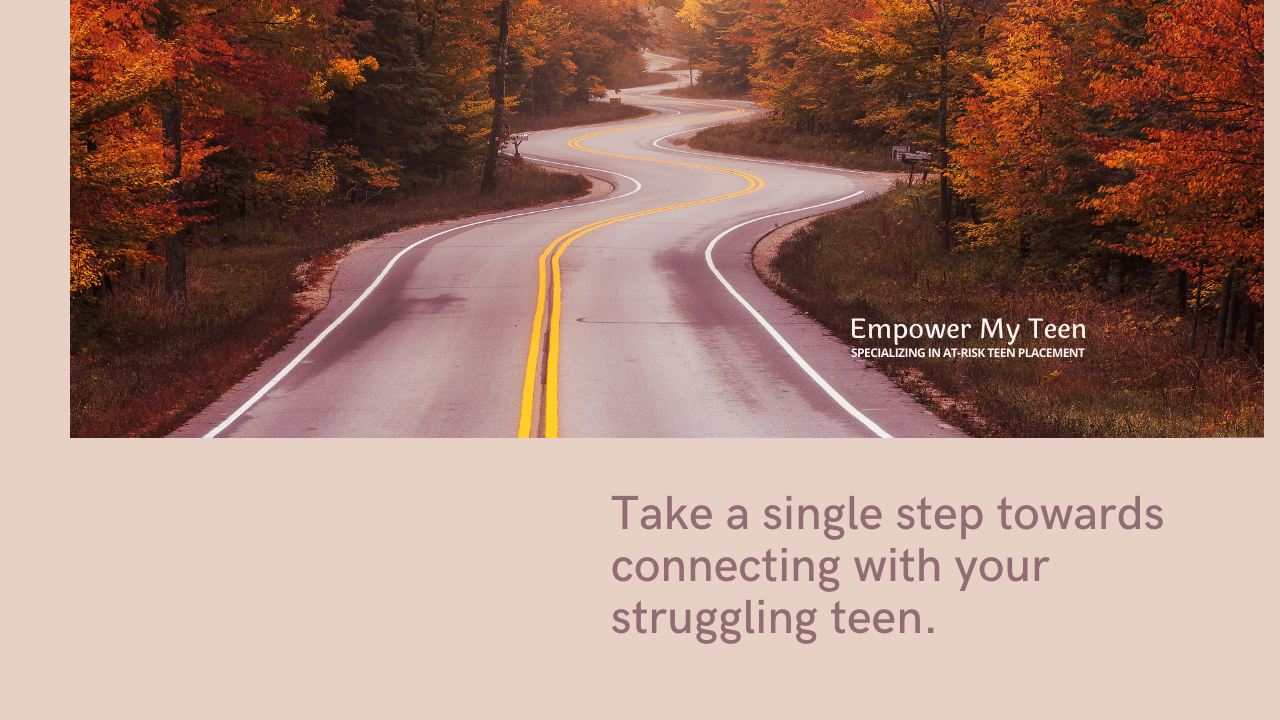Learning how to interpret your teen’s evolving behavior is a challenge.
Maybe you’re thinking:
“I took risks as a teenager but seeing them do it worries me.”
“I’m afraid that these behaviors will lead to something worse down the road.”
“I think this is just peer pressure but these warning signs have me concerned.”
I’m here to tell you that your thoughts are valid.
As parents, we have an innate instinct that tells us when something isn’t quite right — even if there appears to be no evidence to support our feelings.
However, it is important to remember that pulling away and becoming more independent can be typical teen behavior that is a normal part of growing up.
Remember:
- Each teenager is different
- Each teenager goes through hormonal changes
- And each teenager deals with challenges in their own unique ways
So, when should you worry?
As a well-established educational consultant and parenting coach (and someone who has also walked a mile in your shoes), I want to go over with you some of the normal teen behavior you can expect out of many kids, as well as some warning signs that may mean your teen is headed into murky waters, and also the behaviors that signal it may be past due to seek out help.
Typical Teen Behavior

I get it. Your teen’s behavior has changed and being the great parent you are, you’ve grown concerned.
You’ve got the “nip it in the bud” attitude — and I commend you for that!
However, most of the light risk-taking behaviors we see in today’s teenagers are completely normal.
If you think back to when you were their age, you may have:
- Given into peer pressure a few times
- Came home a half-hour past curfew
- Became slightly combative because you wanted more independence
These are all normal teenage behaviors that don’t necessarily mean it’s time to seek professional help.
Some of the typical teen behavior — that is no cause for real concern — may include:
- Grades dropping from A’s to B’s
- Minor curfew violations
- Experiencing a back a forth between confidence and low self-esteem
- Light to moderate changes in eating habits
- Obsessing over their physical appearance
- Sex within a relationship
- Placing blame on you — the parent
- Having mood swings with emotional ups and downs
- Acting childish (slamming doors, throwing temper tantrums, crying)
Many teens grow out of this as they become more mature. However, if you begin to see these traits evolving into behavior that is a little more alarming, then it may signal that it’s time to take a more serious look into these issues and buckle down.
Possible Risky Behavior

There may come a point in time where normal teenage behavior can begin crossing over that ever-so thin line into more problematic concerns.
It is important to note that these types of behaviors aren’t a cause for alarm on their own. You should, however, take it as a warning sign if they are struggling with a combination of several.
Some possible risky behaviors to keep an eye out for are:
- Flunking classes they used to excel in
- Getting suspended or expelled from school
- Refusing to go to school altogether
- A change in friends (with teens who could be seen as bad influences)
- Promiscuity
- Not finding any enjoyment in things they once loved
- Showing a consistent lack of respect towards others
- Seeing no difference in behavior, despite counseling
- Having no inspiration to better themselves
- Abandoning commitments
Many of these behaviors show a lack of motivation or self-worth — which may be attributed to a mental health issue, like depression. If you’re seeing your child beginning to exhibit a blend of these possible risk factors, contacting one of your local mental health professionals (if you haven’t already been down that route) that specializes in young adults could be your next step.
At-Risk Behavior

Have you been staying up late tracking your teen’s phone?
Do you find yourself trying to remember the last time you could trust them?
If you’re feeling as though you’ve hit the end of your rope with the lying, hiding, and overall drastic changes in your child’s risky behavior, it’s possible that your good kid has made the shift into an at-risk teenager.
It’s our worst nightmare, as parents, to see that bright red flag thrown in our faces. But, it’s important for the well-being of our beloved children to stifle our angst, pick ourselves up, and set them back on the right path for a successful life.
Your teen needs you to be strong and give them what is best for them in the long run — because they don’t know yet that tough love is what will save their life.
Some common at-risk behaviors to keep an eye out for include:
- Struggling for months, a year, or longer
- Overly attached to electronics (to the point of aggressiveness or violence)
- Switching therapists or schools do not change their behaviors
- Becoming physically or verbally abusive towards authority
- Eating disorders (anorexia and/or bulimia)
- Breaking laws
- Signs of alcohol or drug abuse
- Violent or threatening behavior
- Self-harm
- Severe depression and/or threats of suicide
Possible Risky Are You Still Unsure If Your Teen Is Demonstrating Normal Behavior?
Are you still unsure as to whether or not that nagging feeling in the back of your mind is just an overreaction?
Or are you positive that your good kid has veered off the beaten path and is headed for a ravine?
Regardless of whether you’re on the fence or confident in where your child sits, I would love to offer you a free consultation to discuss your situation in detail and explore all available options.
You don’t need to wait for at-risk behaviors to manifest before seeking out professional help.
Let’s discuss your feelings of concern — for your teenager, your family unit, and even yourself.
As someone who has personally gone through these same struggles with 2 of my own children, I promise never to judge and always treat your situation as though it were my own.





